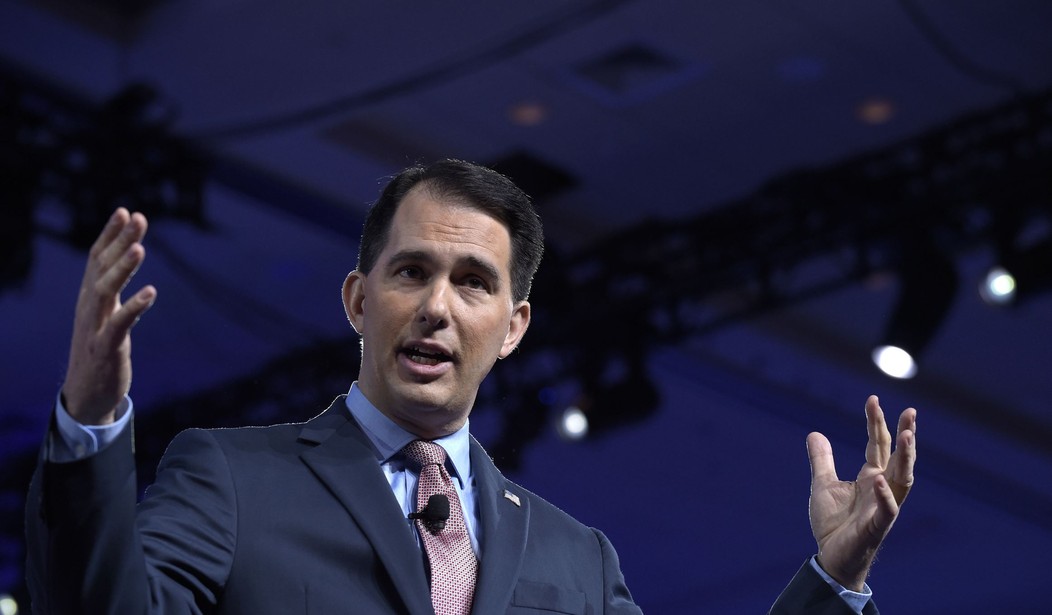MADISON — In February 2011, when Republican Gov. Scott Walker introduced sweeping reforms to state government unions, Big Labor and their liberal allies predicted doom and gloom for Wisconsin. They also pledged that the “people” would drive Walker from office.
Neither happened.
The sky did not fall in Wisconsin and, despite a well-funded campaign by organized labor, Walker remained in office for two full terms, becoming the first governor in U.S. history to survive a recall election.
Sure, the “budget repair bill” that would become known as Act 10 has been rough on union fat cats that for decades held Wisconsin taxpayers financially hostage. And public employees now have to pay more for the kind of sweetheart benefits that many private-sector employees could only dream of.
But nine years later, taxpayers have saved billions of dollars thanks to Act 10, which remains in place despite several court challenges and Democrat Gov. Tony Evers’ empty threats to kill the law.
A new report by the Institute for Reforming Government (IRG) looks back at the legislation that took the nation by storm.
The report notes the mess Walker and the GOP-controlled Legislature inherited from the Democrat majority voters ousted in the Republican revolution of 2010. Wisconsin state government faced a $137 million deficit for the remainder of the fiscal year alone and a $3.6 billion shortfall for the next biennial budget. More so, as Walker noted, hundreds of state employees — if not thousands — were facing layoffs.
Walker’s first executive order declared that the “State of Wisconsin is in an economic emergency caused by years of mismanagement.” He called a January Special Session “to help create a new, healthy, and vibrant climate for private sector job creation.”
Recommended
In the days after Walker introduced the Budget Repair bill, tens of thousands of public employees and their union allies marched on the Capitol. Many of the demonstrators took up residence there. Walker shook off the political concerns posed by the New York Times.
“Obviously there is a lot of protest out there, but in the end, it’s the right thing to do,” Walker told the publication on Feb. 17, 2011. “We didn’t get elected to worry about the politics.”
In his first budget address, Walker said the bill was the first step toward “addressing the long-term challenges” facing Wisconsin.
“The biennial budget I introduce today is built on the savings supplied by our budget repair bill…Our state cannot grow if our people are weighed down paying for a larger and larger government. A government that pays its workers unsustainable benefits that are out of line with the private sector. We need a leaner and cleaner state government…”
Despite Senate Democrats absconding the state to get out of voting on the bill, despite threats to Republican lawmakers’ jobs, to their families and to themselves, the GOP-controlled Legislature passed the landmark Act 10.
The law requires state and most local government employees to pay at least 12 percent of their taxpayer-funded health care premiums and to contribute to their generous public pensions.
In the first three years following the law’s implementation, Act 10 wrought north of $3 billion in taxpayer savings. That included $2.35 billion in pension savings, and $682 million in health savings.
A 2016 report by the MacIver Institute found Act 10 had saved taxpayers more than $5 billion. A more recent MacIver report found Wisconsin school districts have saved more than $3.2 billion in benefit costs. The savings represented a 60 percent decline in costs trend for taxpayers.
More powerfully, Act 10 gave public employees the power to decide whether they wanted to continue to be in unions. The law requires labor groups to hold re-certification votes every year, and employees are free to opt out of membership and dues where unions still operate.
Institute for Reforming Government says Wisconsin’s policy changes should serve as a model for other states.
“Through Act 10, Governor Walker and a reform-minded legislature changed Wisconsin’s budget outlook, opened the door for a budget surplus, and saved taxpayers billions,” said Rob McDonald, chairman of the board for the IRG. “The impact of Act 10 continues to produce positive results for Wisconsin, and other states that need to address a fiscal crisis should look no further than Wisconsin’s Act 10.”

























Join the conversation as a VIP Member